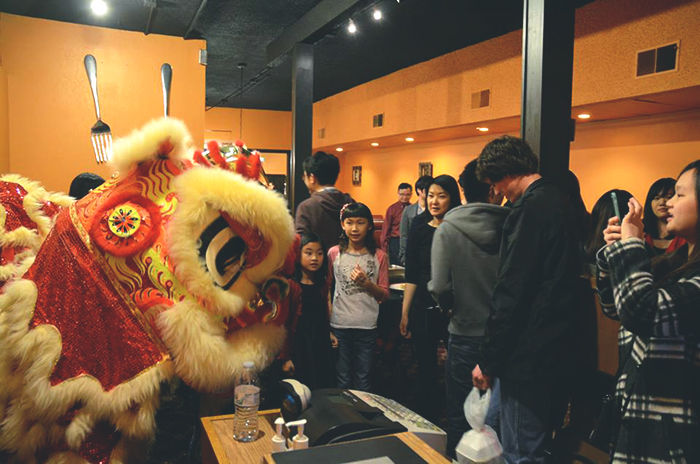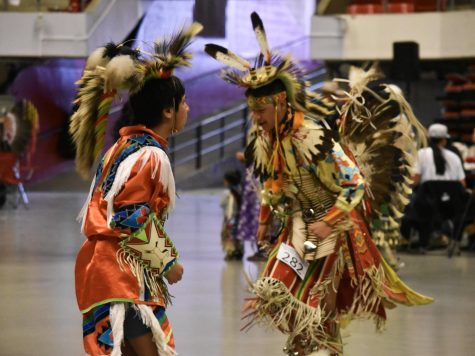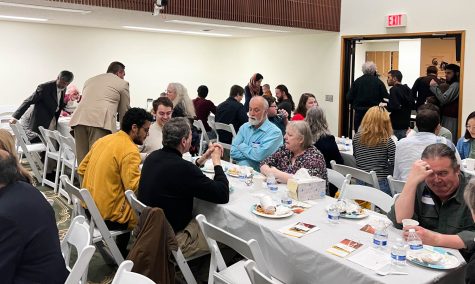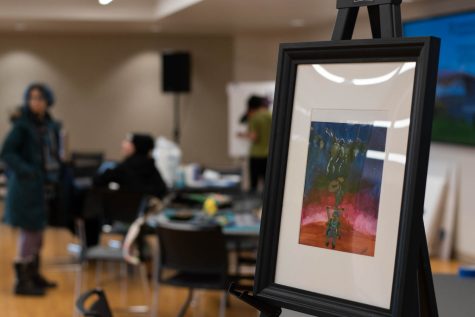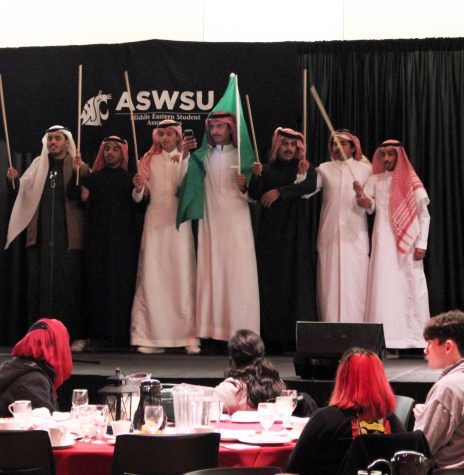Celebrating the new year
TSA’s Lunar New Year dinner educates domestic students of Chinese-Taiwanese culture while providing a taste of home for local Chinese-Taiwanese students.
January 27, 2017
{{tncms-asset app=”editorial” id=”7f9872b8-e44f-11e6-82cd-cbc4f4dfb7fc”}}
The Taiwanese Student Association at WSU hopes to share and celebrate the Lunar New Year with both members and nonmembers.
The secretary of TSA, Louis Ko, explained that in China and Taiwan, the Lunar New Year is a holiday equal to Christmas in America.
“It’s kind of like Christmas,” Ko said. “So, instead of party, most people would go back to their hometown, like Thanksgiving or Christmas. It’s a traditional thing. It’s more of a family, together and enjoying a meal together, like what you do on Christmas Eve.”
He mentioned how many Americans don’t know of the Lunar New Year, but said he hopes that they come experience a piece of Chinese-Taiwanese culture. The club also hopes to create a place where Chinese-Taiwanese students can come together like a close family.
“We’re in a foreign country and you’re in the U.S. (where) most people don’t celebrate it, so … lets provide like a home or a family-like experience we can have dinner in,” Ko said. “For the Americans, it will be an experience, like what we will do for this holiday and introduce the participants to our culture.”
When Ko was younger, he remembers sitting with his family waiting on dumplings for dinner on the New Year.
“I moved to the U.S. when I was 16, but before then, I would go to my grandparents’ house,” Ko said. “We would have dinner together and then basically watch TV until midnight … and then (we would play with) firecrackers.”
When he ate dinner on the Lunar New Year, his favorite dish was always the dumplings.
In South China, the rice dumplings are called Tangyuan. To make the dish, the cook puts filling into rice flour wrapping. In the northern part of the country, the dumplings are called Yuanxiao, where the cook rolls a hard stuffing into the rice flour wrapping, according to a China Daily article.
“Traditionally, people will eat dumplings at the time, but that was more of a traditional thing in urban areas during my childhood,” Ko said. “The interesting thing is, I’m from South China but my grandfather is from the North, so we do what people from the North do.”
At the the TSA club’s Lunar New Year dinner there will be an assortment of Chinese dishes, served buffet-style.
There will also be bingo and a Chinese game called couplet. A couplet is a pair of Chinese poetry lines that go along with a set of rules. A couplet can also be called an antithetical couplet, written with a counterpoint.
“There is a first-half sentence and a second-half sentence. We will provide the first half and the other half will be on pieces of paper,” Ko said. “You imagine which one will be more appropriate to appear together.”
Ko explained that in the game of couplet you try to find the counterpoint of the first phrase.
“For the tables with members who don’t speak Chinese, we usually have stuff there to explain,” Ko said. “So it’s not going to be like you’ll be there looking at the characters and don’t know what to do.”
Couplets are also commonly seen on the doors of Chinese homes or inside the house on a hanging scroll.
The TSA’s Lunar New Year Dinner will take place at 8 p.m. on Saturday in the Mandarin House. Admission is $8 for TSA members and $10 for non-members.


